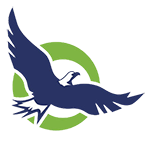Read the detailed description of Quest's Summer Camp information!
Creating a Successful Morning Routine
UPCOMING PROGRAMMING
School Year Programming
School year therapy groups are ten-week afternoon therapeutic groups that are designed to provide therapy by specifically targeting individualized goals for our campers.
A minimum of one hour includes therapeutic activities that heavily target the development of social skills, emotion regulation, and positive behaviors, while the next hour focuses on further skill development by providing a variety of experiential activities as part of a group to create opportunities to observe the child in a natural setting and intervene to facilitate change. Some quarters provide a special emphasis to improve skills, while other quarters have a more general offering based on the campers’ interests and often include programming in areas such as video game making, drama, art, movie making, etc.
Spring Group Started March 19th (Fullerton)
Summer Programming
Quest’s intensive summer program offers 7 weeks of programming (6 weeks of day camp and 1 week of residential). The summer program includes individualized behavior plans, group therapy, occupational therapy, a social thinking curriculum, mindfulness activities, yoga, soccer, games in the park, and field trips (beach, Boomers, Rockin’ Jump, Discovery Science Center, bowling, etc.) to create a fun and engaging, therapeutic camp experience for children.
Weekly parent meetings are also included. The summer program has been found across multiple studies to significantly reduce hyperactivity, impulsivity, aggression, and inattention, while improving peer relations, family relations, athletic competency, behavioral control and self-esteem. Quest has also been found to improve social awareness, social cognition, social communication, and social problems.
Summer Camp Dates are:
June 25 through August 9th

